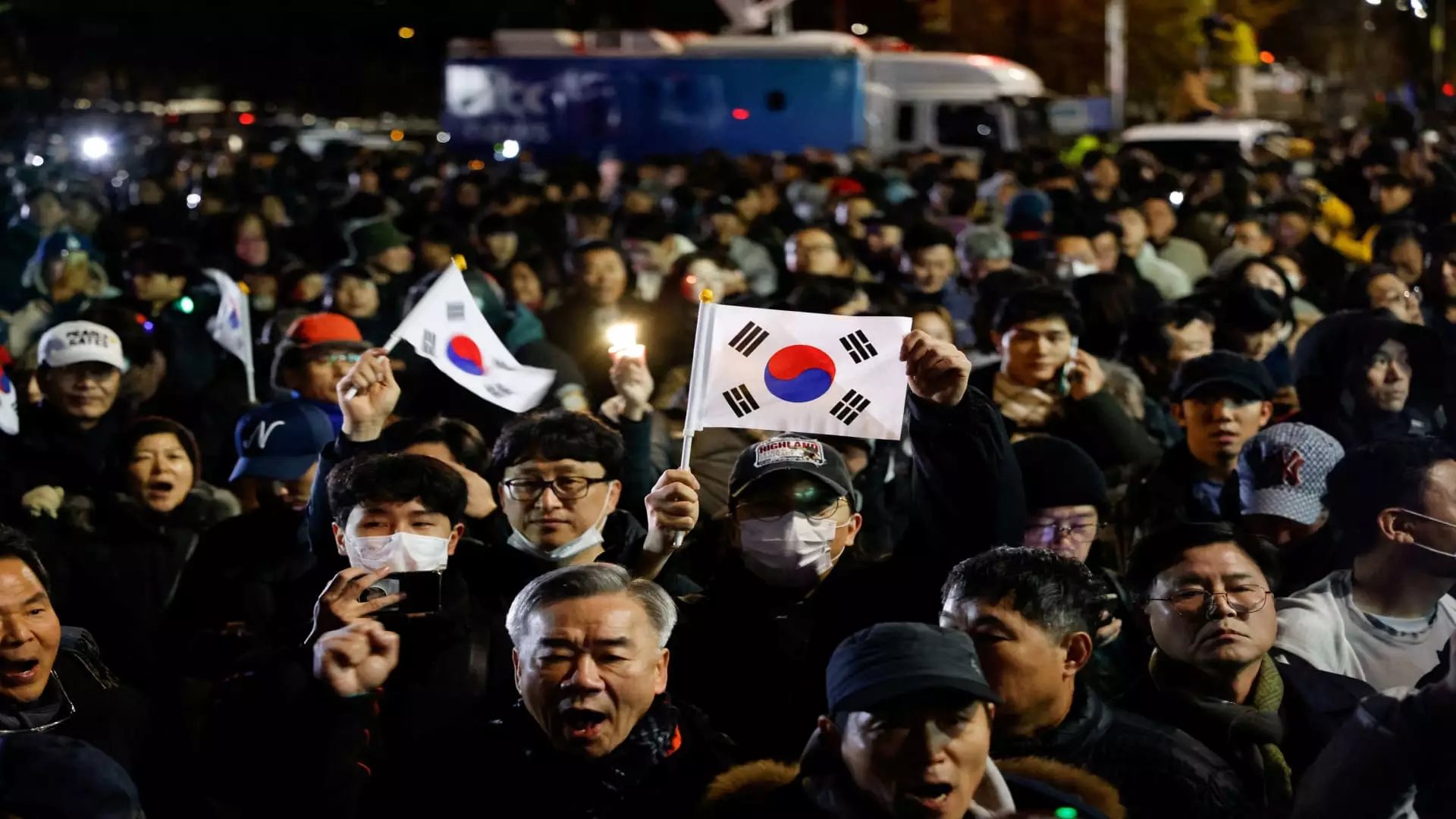The recent political turmoil in South Korea has significantly impacted the financial markets, leading to a noticeable decline in the country’s key indices. On a fateful Wednesday, the Kospi index dropped by 1.8%, while the Kosdaq saw a steeper decline of 2.4%. This downturn can be attributed to the dramatic events surrounding President Yoon Suk Yeol, who controversially imposed a martial law decree only to lift it hours later amid mounting pressure for his resignation. Such instability raised concerns among investors about the government’s capacity to maintain economic order and governance stability.
As frustration among opposition parties and citizens reached a boiling point, a coalition of lawmakers emerged to draft a bill that could initiate impeachment proceedings against President Yoon. If this bill is introduced, it must be voted on within 72 hours, thereby intensifying the urgency of the political landscape. Furthermore, reports of mass resignations by Yoon’s chief of staff and senior advisors indicate a potential crisis within his administration, highlighting an alarming level of discontent at the highest levels of government. This situation elicits fears that the political environment may lead to prolonged instability, contributing to a lack of confidence in the South Korean economy.
In response to the emerging financial crises, the Bank of Korea has taken swift action. Following an emergency meeting, the bank promised to enhance short-term liquidity and to implement measures aimed at stabilizing the foreign exchange market. Notably, the Bank also made assurances that special loans could be mobilized to infuse much-needed capital into the system. These proactive measures reflect a recognition of the potential ramifications of political instability on economic health, with the central bank clearly attempting to prevent further erosion of investor confidence.
Global Market Repercussions
The ramifications of South Korea’s political upheaval were not confined to its borders. Other areas in the Asia-Pacific region reacted similarly, as countries processed the unfolding events in South Korea. Japan’s Nikkei 225 index fell by 0.4%, with other markets like Hong Kong and mainland China also experiencing declines. This indicates a broader regional concern regarding South Korea’s economic outlook, reflecting investor apprehension about not just local but regional stability.
In addition, the financial markets’ volatility was underscored by the performance of U.S. exchanges, which saw South Korean stocks swinging wildly. The iShares MSCI South Korea ETF plummeted to a 52-week low, showcasing how international investors are closely monitoring the situation. While the broader U.S. markets appeared to trend upwards, South Korean equities struggled, revealing a stark divide in how regional political crises can create ripple effects across global markets.
South Korea’s recent political crisis has exposed vulnerabilities within its economic framework and has provoked critical responses across various stock markets. Investors are now left to navigate through a landscape marked by political strife, as calls for action against President Yoon rise amid indications of a deteriorating governmental structure. It will be crucial to observe how these unfolding events affect not only South Korea’s economic prospects but also the broader economic stability within the Asia-Pacific region.

Leave a Reply